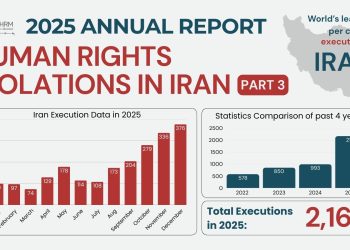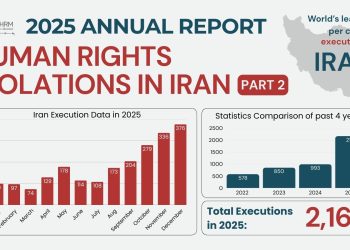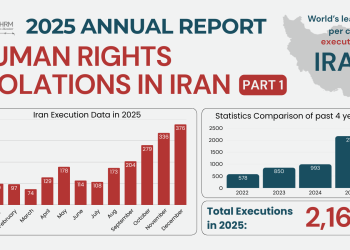“Now I am a captive. My body is chained in a dark, damp cell, and my soul imprisoned in the shadow of a deadly thought… I am condemned to die, condemned to die! This doom is my only companion, haunting me relentlessly. My entire being is frozen by the chilling weight of it, my body bent under the crushing, unbearable burden…”
(“The Last Day of a Condemned Man”, Victor Hugo)
written by Dr. Aziz Fouladvand
The Qisas Bill: A Battleground for Two Religious Discourses
The rigid and dogmatic application of Qisas (retribution) and other inhumane punishments in Iran has long served as a battlefield for two competing religious discourses. On one side stands a humanistic and modern perspective; on the other, a reactionary and punitive interpretation. Notably, the main democratic opposition People’s Mojahedin Organization of Iran (MEK/PMOI), as a Muslim Shiite movement, courageously opposed Khomeini’s oppressive version of “jurisprudence,” denouncing it as “hypocritical Islam.” This ideological clash is well-documented in the Mojahedin publications from April and May 1981. These statements, made during an era when Khomeini’s religious discourse dominated unchallenged in Iran, reflect an unwavering commitment to democratic principles and values.
The MEK/PMOI condemned Khomeini’s doctrine as “an indelible stain on the shoulders of those who falsely claim Islam” and derided the “exclusive domination of the reactionary ruling party.” This stance embodies a profound confidence and integrity in a worldview that prioritizes “truth” over “political expediency.”
History records their fearless indictment when they said: “Every day, across this homeland, we witness inhumane and un-Islamic atrocities, such as stoning, amputations, and public executions—actions that constitute an indelible stain on the shoulders of those who falsely claim Islam and revolution. The Qisas bill… is nothing more than an attempt to legalize past anti-Islamic actions while laying the groundwork for their future continuation and escalation. All of this, despite the fact that the authors and proponents of this bill are, for the most part, individuals who have violated the revolutionary rights of this oppressed nation and, under Islamic penal law, are themselves the first who should be held to account.”[1]
In other statements, the PMOI/MEK said: “The Qisas bill can be seen as the most prominent example of the ideological and historical bankruptcy of the ‘dogmatic, sectarian’ interpretations of Islam’s rulings… As long as the economy, politics, judiciary, and governance of the country remain under the exclusive control of the reactionary ruling party, stuck in the deadlock of outdated solutions, the implementation of Qisas and the punishments for theft, adultery, etc., based on these naïve and dogmatic interpretations, will not lead to any positive result.”[2] The MEK’s publication contends that such “superficial and violent” approaches are not only “un-Islamic” but also “fundamentally alien and contrary to the true and revolutionary Islam, which always focuses on the “roots” when addressing social issues.”[3]
[1] The Mujahid publication, issue 120, dated 24th of Ordibehesht, 1360 (May 14, 1981), contains an article titled: “The Qisas Bill: An Insult to the Dignity of Humanity, Especially the Iranian Heroic Woman in the Era of the Great Awakening of Nations.”
[2] The Mujahid publication, issue 123, pages 8 and 33, features an article titled “An Analysis of the Qisas Bill.”
[3] The Mujahid publication, issue 123, pages 8 and 33, features an article titled “An Analysis of the Qisas Bill.”







